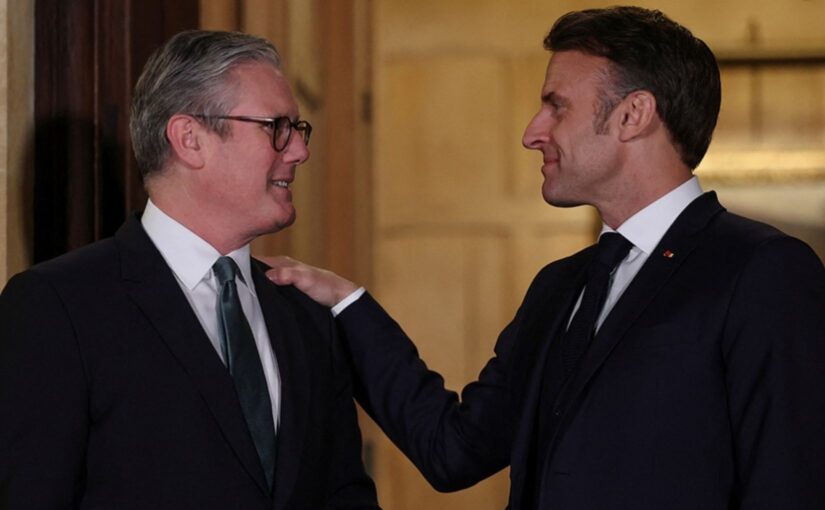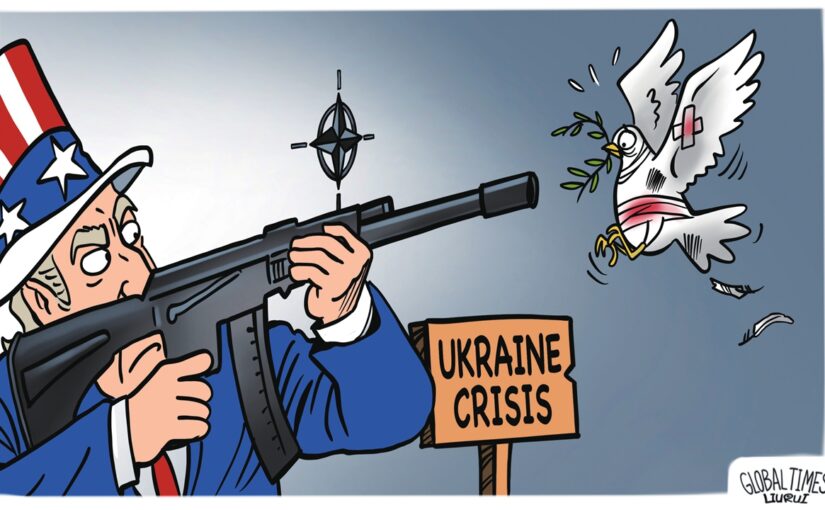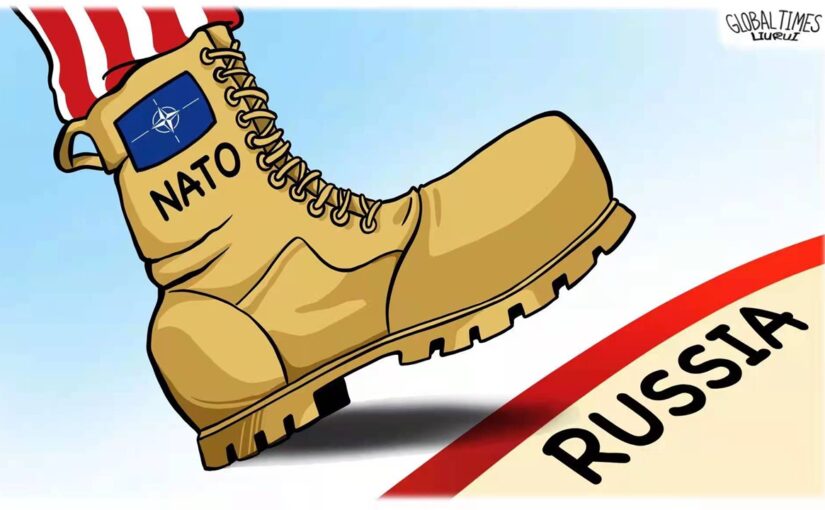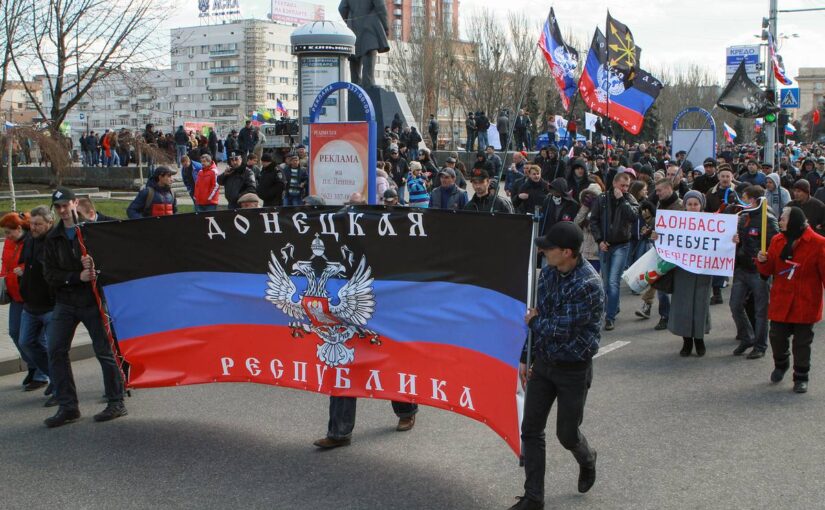The following article by Carlos Martinez, first published in the Morning Star, assesses Western Europe’s position regarding the prospects for peace in Ukraine.
Political leaders in western Europe occasionally like to talk up the need for “strategic autonomy” from the US. Emmanuel Macron in particular placed it at the centre of his foreign policy platform at the start of his presidency eight years ago, and has raised the issue several times since.
The idea of Europe exercising strategic autonomy rather than simply outsourcing its foreign policy to Washington is not new, but rather a reiteration of Charles de Gaulle’s ideas on international relations from the 1950s.
There have been a handful of noteworthy examples of its deployment in the 21st century. France, under president Jacques Chirac, and Germany, under Chancellor Gerhard Schroder, refused to participate in the 2003 invasion of Iraq.
The reason given is that they were not convinced by the dubious intelligence about Saddam Hussein’s weapons of mass destruction. The real reason is that France and Germany had no interest in pursuing the intended outcome of that war: US control of Iraq’s vast reserves of high-quality, easily extractable oil.
Despite repeated warnings from multiple US administrations (Obama, Trump and Biden), Germany participated in the planning and construction of the Nord Stream 2 pipeline, providing cheap natural gas from Russia to central Europe via the Baltic Sea.
Again in spite of the “friendly advice” of the Obama administration, France, Germany, Britain, Italy and Spain all signed up to the Asian Infrastructure Investment Bank — headquartered in Beijing and first proposed by China — in 2016. This at a time when the US was several years into its Pivot to Asia.
And yet, in the US-led “post-war international order,” strategic autonomy has largely been honoured in the breach. The truth is that exercising strategic autonomy is not as easy as it sounds, given the US’s actually existing economic and military hegemony.
The centrality of the US dollar to the global economy, along with the cynical use of the IMF and World Bank to further Wall Street’s agenda, causes Western governments to think twice about defying instructions emanating from the White House.
Meanwhile, the US overwhelmingly provides the muscle for an imperialist world order that western Europe — along with Japan, Canada and Australia — benefits from, albeit not to the same degree as the US itself.
“McDonald’s cannot flourish without McDonnell Douglas,” and ultimately the US’s nuclear arsenal, Nato, hundreds of overseas military bases and an elaborate system of troop and weapons deployments around the world all have their role to play in maintaining the flow of profits from periphery to metropole.
As such, the privileging of US economic and strategic interests is built into the imperialist world system. Faced, therefore, with the choice of embracing the multipolar trajectory or seeking shelter under an increasingly leaky and fragile US hegemonic umbrella, Europe has tended towards the latter.
The examples are numerous. Britain’s involvement in Aukus; French and British enthusiasm for the war of regime change against Libya; European imposition of sanctions against China on entirely fictional charges of human rights abuses in Xinjiang — to name but a few. But rarely has this toxic relationship been more evident than with Europe’s total subservience in Nato’s proxy war against Russia in Ukraine.
This is a war from which the US has benefited and Europe has suffered in equal measure. The US military-industrial complex has — to coin a phrase — made a killing. Shareholders in the US fracking industry are sitting pretty, while European pensioners shiver their way through another long winter of high energy prices resulting from sanctions on Russian natural gas. All in the name of a disastrous and entirely unnecessary conflict in which an estimated million people have lost their lives.
Now all of a sudden, Donald Trump is back and a new tune is playing on the Pentagon speakers. Team Trump has clearly come to the conclusion that, rather than trying to wage a new cold war on multiple fronts, it would be better for the US to build a rapprochement with Russia and consolidate forces against China, by now the world’s largest economy in purchasing power parity terms, the major trading partner of two-thirds of the world’s countries, and the leading force in the multipolar trajectory.
For the US, extricating itself from an unwinnable war in Ukraine is an essential first step down this road. But Europe finds itself in a quandary. On the one hand, a withdrawal from Ukraine that Starmer and Macron can put down to a whimsical and capricious White House resident could be just what the doctor ordered.
On the other hand, it’s painful for London, Paris and Berlin to have their subordinate role in the empire hierarchy so brutally exposed. Meanwhile, if Trump’s turn to China means that Britain, France and Germany are forced to “decouple” from China and significantly reduce trade and investment, that will likely have an even more deleterious effect on their economies than the sanctions on Russia.
All in all, now would be an excellent time for Europe to seriously develop its strategic autonomy; to accept that the world is moving in the direction of multilateralism and sovereignty; to accept that imperialism is in decline; and to develop positive and mutually beneficial relations with China, with Russia, with Iran, with the countries of Asia, Africa, Latin America, the Caribbean and the Pacific. Such a programme is by no means easy, but it is obviously necessary.
Unfortunately, this is not the way things are going. Starmer, Macron, Merz and Meloni, instead of adapting to a shifting reality, are desperately (“pathetically” is perhaps more precise) trying to persuade Trump to get the band back together and recommit to the Ukraine war. The endlessly hawkish Starmer, channelling Tony Blair and George W Bush, has proposed a “coalition of the willing” to “bring a durable peace” to Ukraine by means of, well, keeping the war going as long as possible.
He has even offered British “boots on the ground and planes in the air.” Given Russia’s oft-stated and not-unreasonable position that it will never accede to Nato troops in Ukraine, any such British deployment would likely look more like “planes on the ground and boots in the air.”
Meanwhile, European Commission president Ursula von der Leyen says that “Europe urgently needs to rearm and member states must be given the fiscal space to carry out a surge in defence spending.” That is, European workers must accept ever-deeper austerity in order to help out our arms manufacturers and defend our democracy from Big, Bad Vlad.
If Europe continues down this treacherous path, the continent will see further decline, poverty, inequality, instability and conflict, inevitably accompanied by racist scapegoating and the rise of the far right. Working-class and oppressed communities should ask themselves whether they accept such a destiny.




